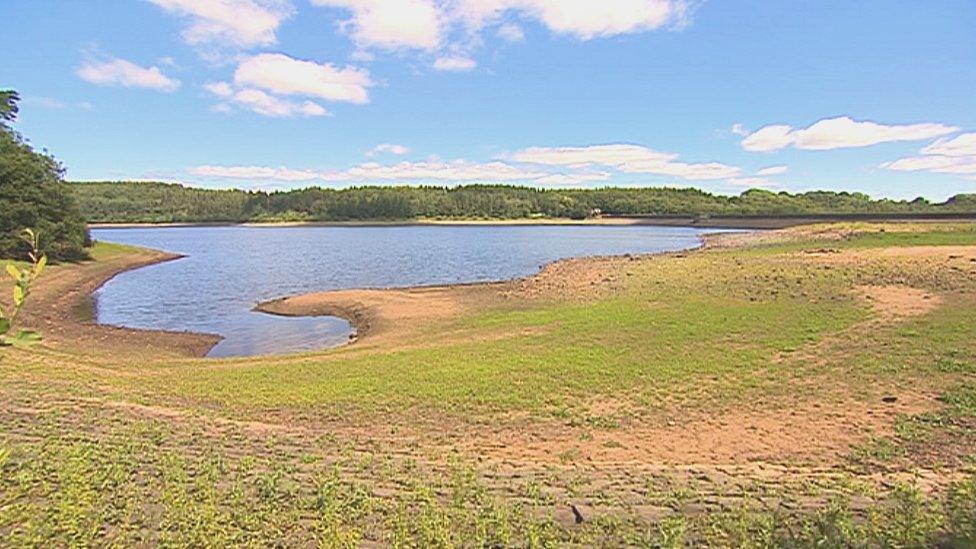Yorkshire hosepipe ban remains despite rise in reservoir levels
- Published
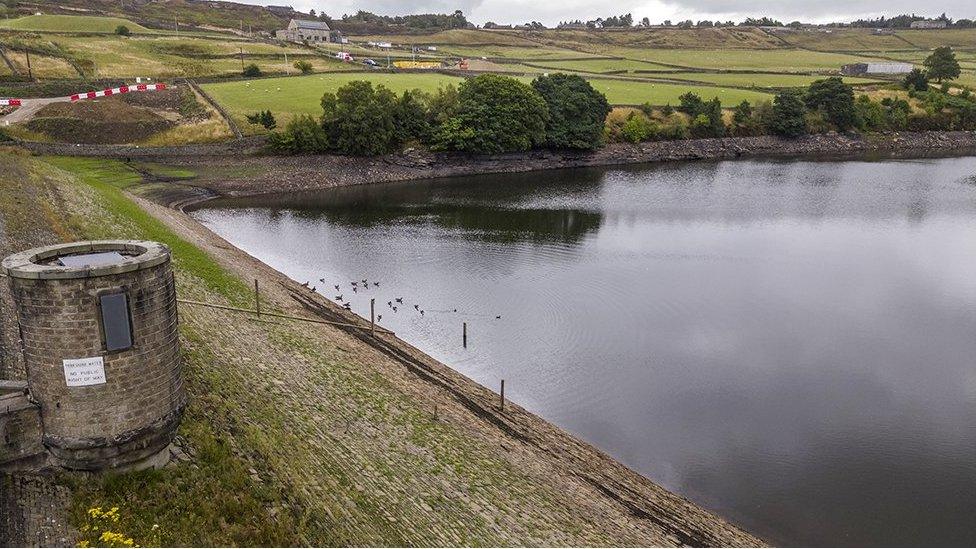
Reservoir levels are still lower than usual despite recent rainfall, Yorkshire Water says
Water levels in Yorkshire reservoirs have risen by 19% in the past six weeks but are still below expected levels for the time of year, Yorkshire Water said.
The utility firm said that September and October saw as much rainfall as the whole of the summer.
Despite the levels "moving in the right direction" drought measures remained in force and could continue into 2023.
A hosepipe ban was introduced in August after levels fell below 50% for the first time since the drought of 1995.
Anyone caught flouting the ban could be hit with a £1,000 fine.
Granville Davies, manager of water and catchment strategy at Yorkshire Water, said the rainfall was not evenly spread across the county and some reservoirs in South Yorkshire were "still much lower than we would hope".
"Reservoir levels are moving in the right direction - we're seeing some significant increases week-on-week as the rainfall, drought permits, additional leakage activity, and support from our customers to save water, help them to top up," he said.
'Save water' plea
The company's extensive network of pipes was being used to move water around the region and it had applied to the Environment Agency for additional measures to help balance stocks.
"It's really important that we all continue to save water where we can," said Mr Davies.
"Small changes in habits will help give reservoirs the best chance possible to top up this winter, ahead of the warmer months in spring and summer next year."
Yorkshire Water said the situation was under constant review and customers would be told as soon as it met the requirements needed to lift the hosepipe ban.

Follow BBC Yorkshire on Facebook, external, Twitter, external and Instagram, external. Send your story ideas to yorkslincs.news@bbc.co.uk, external.
- Published29 September 2022
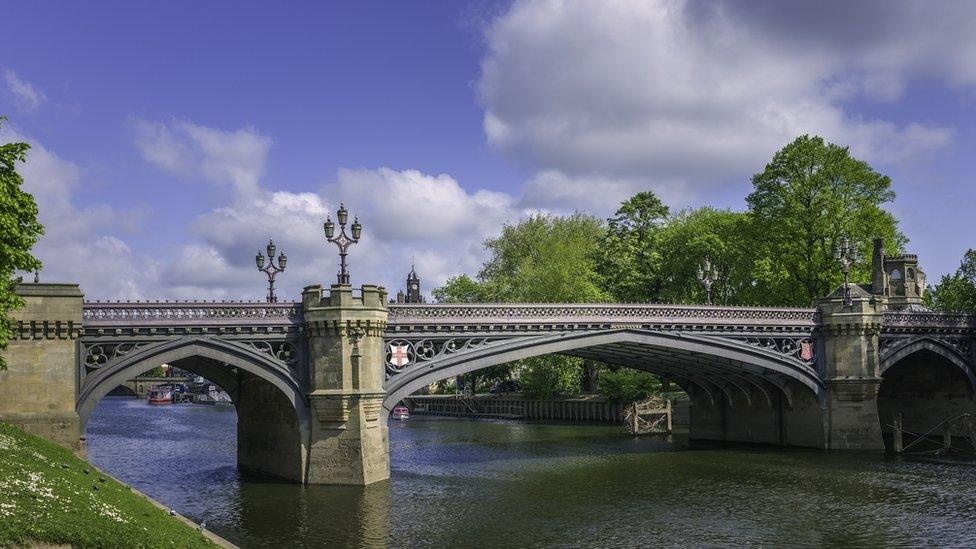
- Published27 September 2022
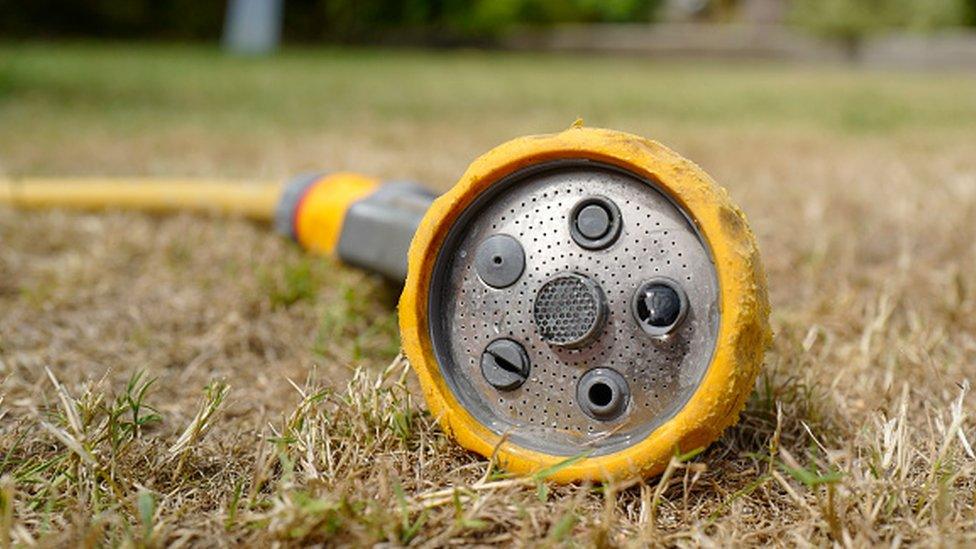
- Published15 September 2022
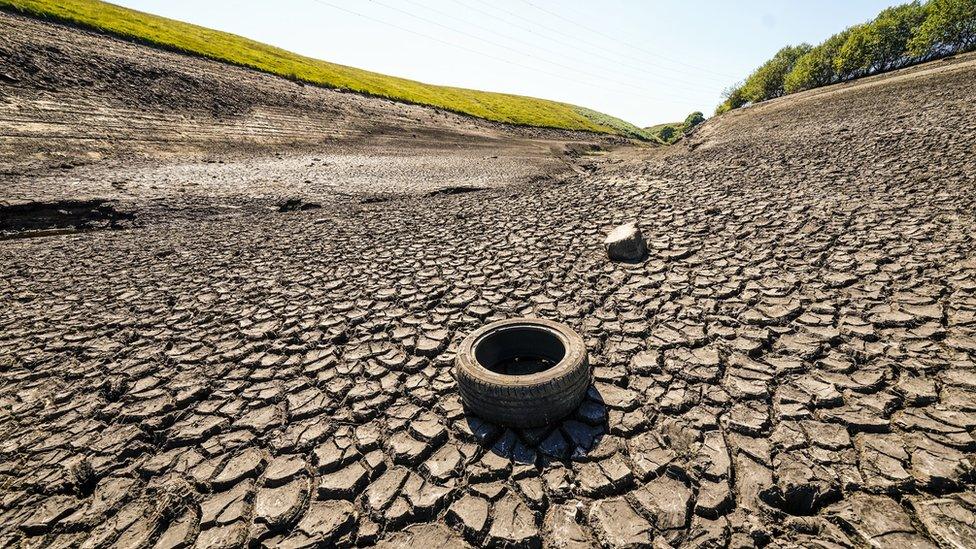
- Published26 August 2022
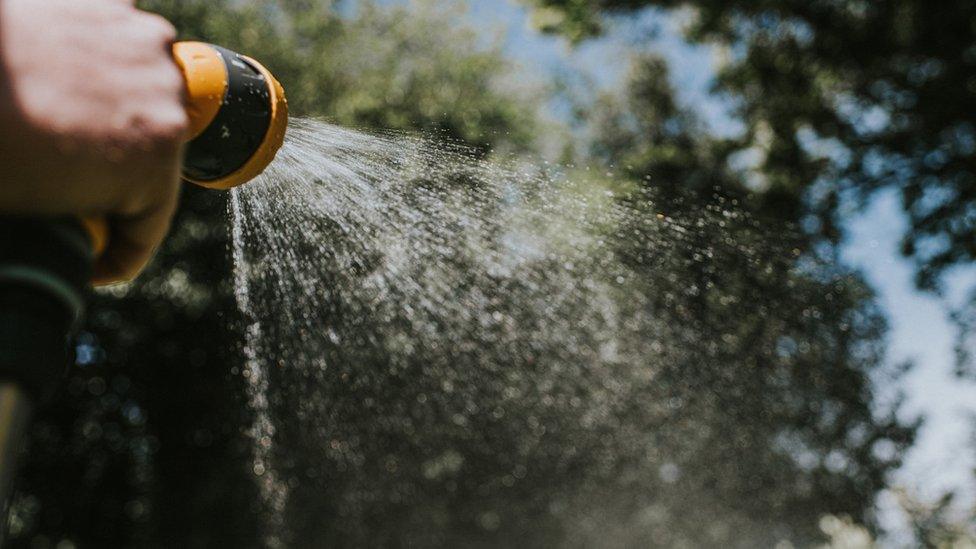
- Published11 July 2022
